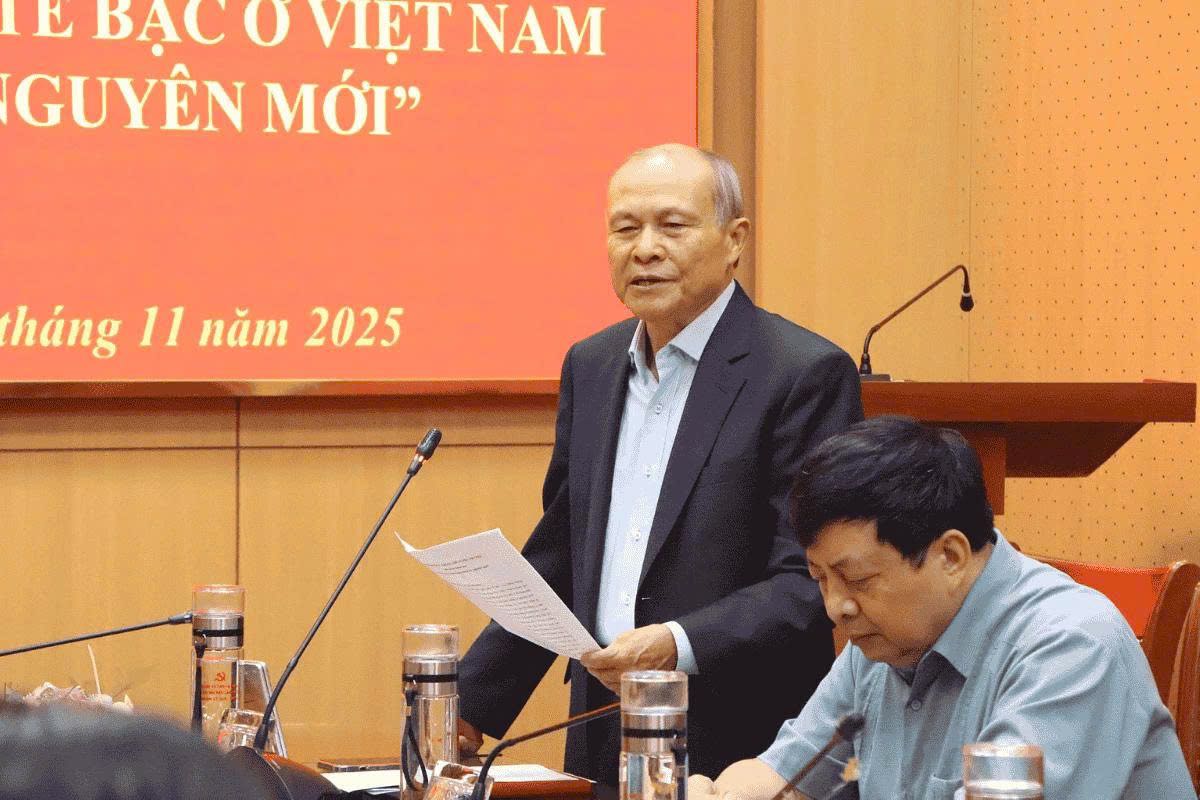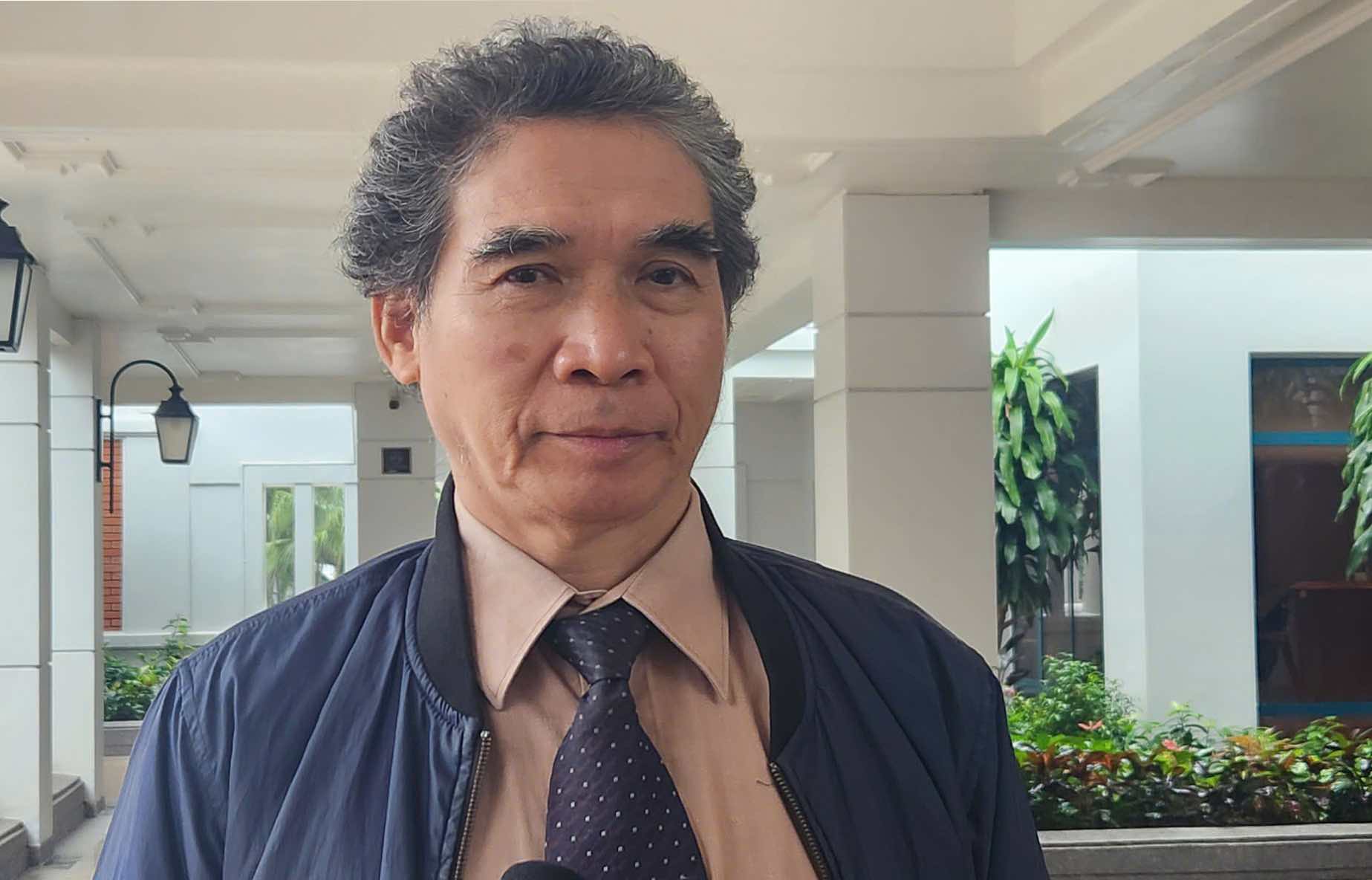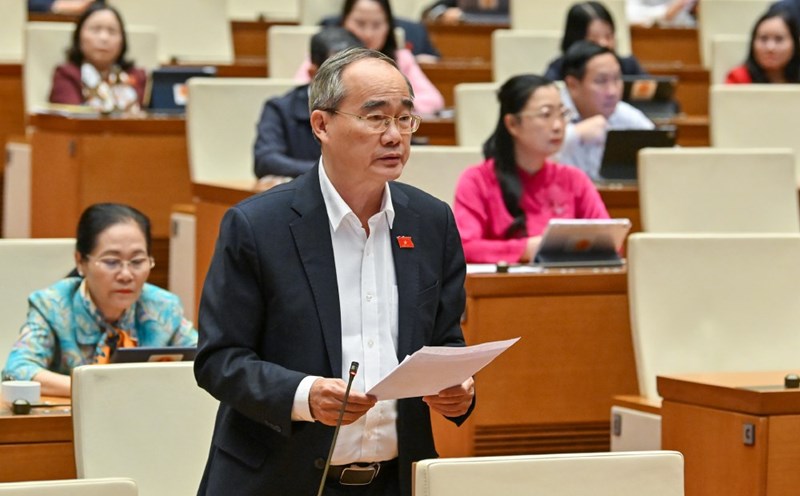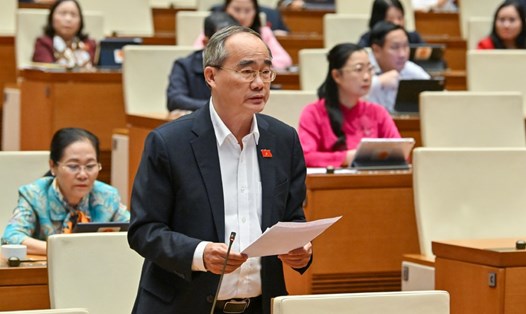At the discussion session on the socio-economic situation in the National Assembly at the 10th Session of the 15th National Assembly, delegate Nguyen Thien Nhan (HCMC delegation) proposed raising the retirement age to 65 with the expectation of having 5 million more workers to serve the double-digit economic growth target. This proposal has received the attention of many workers and experts.
Avoid missing missed golden opportunities
Prof. Dr. Giang Thanh Long (National Economics University) said that increasing the retirement age needs to be approached cautiously, because labor data for the period 2010-2023 shows that the rate of highly productive workers has decreased from 86% to 78%.

This means that the number of people working effectively, creating great value is gradually decreasing, while the proportion of older workers is increasing.
" extending working time does not mean economic growth" - Mr. Long emphasized and said that in the context of businesses accelerating digitalization, older workers often have difficulty adapting to new technology, easily falling into unemployment or being eliminated.
Vietnam is in the golden population period - the period when the young labor force accounts for the highest proportion. Generation Y and Z, with the ability to quickly absorb new technology, can become growth pillars in the next 30 years if invested in the right direction.
However, there are still about 1.6 million young people unemployed and not participating in training, while the rate of workers with degrees is only 29%.
"If we don't focus on improving the skills of this group, we will miss the golden opportunity before the population gets older," he warned.

From a policy perspective, Mr. Tran Viet Luu - Deputy Chief of the Central Office of the Vietnam Association of the Elderly said that increasing the retirement age needs to be implemented flexibly, depending on working conditions and the characteristics of the profession, especially for female workers.
This policy must ensure harmony between the requirements of socio-economic development and the rights of workers, instead of applying it rigidly to all subjects.
We cannot just "do more" but must "make smarter"
Associate Professor, Dr. Nguyen Thuong Lang - senior lecturer at the International Institute of Trade and Economics (National Economics University) - commented that extending working age can also reduce opportunities for the younger generation.
While the State is streamlining the payroll of about 145,000 civil servants and public employees, retaining too many older workers will make the apparatus more cumbersome, costly and limit human resource shift - a necessary factor for innovation.

"Lavor productivity cannot only rely on more employment, but must do things smarter, that is, applying technology, digital skills and innovation" - he emphasized.
According to Associate Professor, Dr. Nguyen Thuong Lang, instead of extending the working time of the elderly, Vietnam should focus on investing in training young human resources, equipping them with knowledge of science, technology, automation and artificial intelligence.
"A well-trained young worker can replace 5-10 manual workers. That is the real way to increase productivity" - he affirmed.
He also said that the policy of increasing the retirement age should be considered a temporary solution in the transition period, not a long-term strategy. Vietnam needs to build a national strategy for digital human resource development, linking training with the practical needs of businesses and global trends.
For older workers, the policy needs to be flexible, allowing them to continue working if they have the capacity and desire, but should not "forcing" to extend their working age in industries with high labor intensity.











